Daily Current Affairs | March 13 2025 |
Important Topics from Current Affairs 1) World Air Quality Report 2024 2) PM-YUVA 3.0 3) Mission Amrit Sarovar 4) Mycelium Bricks to Tackle Climate Change 5) ‘No Money for Terror’ Conference
Jumbo IAS
3/13/20254 min read
1) World Air Quality Report 2024
The World Air Quality Report 2024 which was published by Swiss air technology firm IQAir, gives a detailed analysis of global air pollution levels, bringing to light the alarming trends and some important information.
The report is based on data collected from over 40,000 air quality monitoring stations across 138 countries.
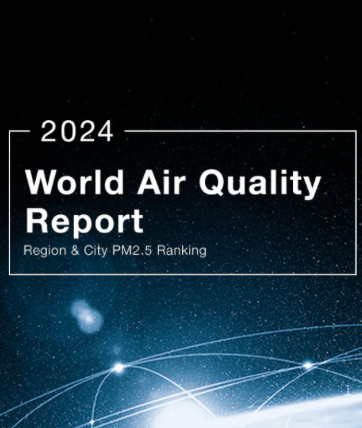

Situation in India
India’s average PM2.5 concentration in 2024 was 50.6 µg/m³, exceeding the WHO safe limit (5 µg/m³) by 10 times.
13 out of the world’s 20 most polluted cities are in India, with Byrnihat (128.2 µg/m³) and Delhi (91.6 µg/m³) ranking among the worst.
Air pollution contributed to 2.1 million deaths in India in 2021, making it a leading cause of premature mortality.
Stubble burning, industrial & vehicular emissions affects some states disproportionately
Global Air Quality Situation
99% of the world’s population breathes air that exceeds WHO’s PM2.5 limit (5 µg/m³), with only 12 countries meeting safe levels
Chad (91.8 µg/m³), Bangladesh (78 µg/m³), Pakistan (73.7 µg/m³), Congo (58.2 µg/m³), and India (50.6 µg/m³) rank as the world’s most polluted nations.
Air pollution caused 1 million deaths worldwide in 2021, making it 2nd largest global risk factor for mortality after hypertension.
South Asia, Africa, and the Middle East face the highest pollution levels, while Europe and Oceania have the cleanest air due to strict regulations and renewable energy adoption.
2) PM-YUVA 3.0
The Ministry of Education launched the third edition of the Prime Minister’s Scheme for Mentoring Young Authors (PM-YUVA 3.0).
The scheme is in line with the National Education Policy (NEP) 2020, which highlights the need to create a knowledge-driven ecosystem.
The National Book Trust, India, will oversee its implementation.
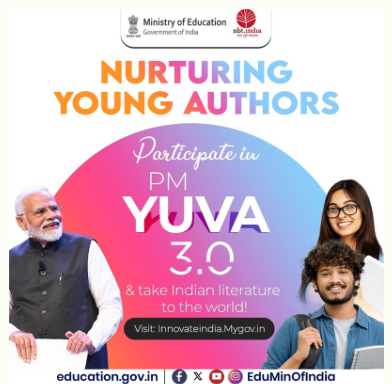

About the Scheme
PM-YUVA 3.0 builds on the participation of young authors in 22 Indian languages and English in its previous editions.
Aim - Train young authors under age of 30 to promote reading, writing, and book culture.
It provides mentorship and publishing opportunities to enhance Indian literature on a global platform.
It focuses on 3 themes: role of the Indian diaspora in nation-building, the Indian Knowledge System, and makers of modern India from 1950 to 2025.
3) Mission Amrit Sarovar
The Indian Railways will dig ponds as part of the Union government’s Mission Amrit Sarovar that aims to address the critical issue of water scarcity in the country.
Railway’s Role :
Identify and excavate new waterbodies near railway sites.
Utilise excavated material for railway embankment construction.
Coordinate with State governments for implementation.
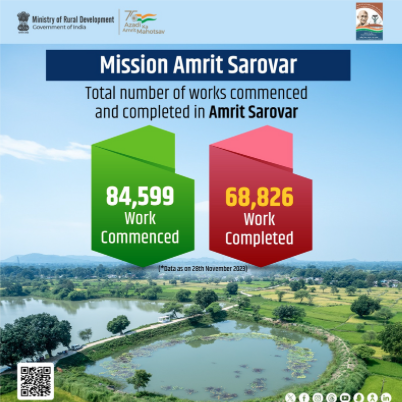

About the Mission
Launched in April 2022, as part ‘Azadi ka Amrit Mahotsav’ celebrations, with the goal of constructing to rejuvenating 75 ponds in each district.
The program is led by Ministry of Rural Development in cooperation with 8 other ministries.
Objectives - Ensure community participation(Jan Bhagidaari), water sustainability, aquifer recharge etc.
4) Mycelium Bricks to Tackle Climate Change
Fired clay bricks have been the mainstay of construction industry but their production emits 300 million tonnes of carbon dioxide annually, which could increase with more urbanisation.
In the light of climate change, the construction industry is considering usage of Mycelium Bricks to reduce its carbon footprint and become more sustainable.
Mycelium Bricks - It is an organic brick that is formed from organic waste and the mycelium of fungus.
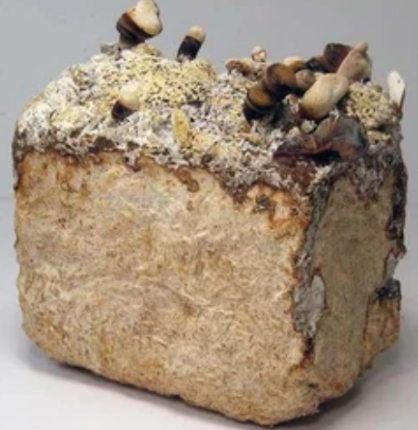

Special Features
Strength to Weight Ratio - High strength-to-weight ratio but weaker than concrete.
Insulation - Effective heat insulator, reducing energy consumption.
Carbon Footprint - Low carbon footprint as it does not require high-temperature kilns.
Other Properties - Fire resistant, Biodegradable etc.
Global Usage
In 2014, The Living Embodied Computation Lab, commissioned by Princeton University, created a building called the Hy-Fy in Queens, New York, using mycelium bricks, which won the 2014 Young Architects Program Competition at MoMA PS1.
MycoHAB, a project in Namibia, built the world's first structural mycelium building, using mycelium technology developed for the US space agency NASA.
NASA is exploring mycelium as a potential building material for outer space, launching the Myco-Architecture Project in 2020.
Ecovative, founded by Eben Bayer and Gavin McIntyre, played a pivotal role in popularising mycelium as a biomaterial
5) ‘No Money for Terror’ Conference
During the 4th NMFT Conference India advocated that unity amongst nations is essential in the fight against Terrorism and India stands steadfast with the global community in this fight.
India said that Terror Financing now has cross-border linkages and due to digital technologies, the sources, methods and channels used for flow of assets by terrorists are becoming increasingly more complex.
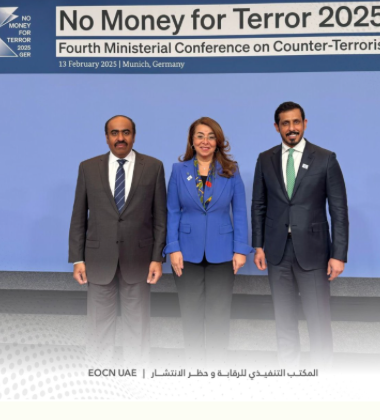

About NMFT
It is a global ministerial conference under the control of Financial Action Task Force (FATF) and UN Counter-Terrorism Bodies.
The 1st NMFT was held in Paris, France in 2018, while the current 4th NMFT is being held in Munich, Germany.
It serves as a platform for intelligence sharing, legal cooperation, capacity building, strengthening financial oversight and digital transaction monitoring.
Financial Action Task Force (FATF)
FATF is an intergovernmental policy-making and standard-setting body dedicated to combating money laundering and terrorist financing, with headquarters in Paris, France.
It was established in 1989 during the G7 Summit in Paris to develop policies against money laundering. In 2001, its mandate expanded to include terrorism financing.
FATF has 40 members, including 38 jurisdictions and two regional organizations (the Gulf Cooperation Council and the European Commission)
If a country repeatedly fails to implement FATF Standards, then it can be named in “Grey List” or “Black List”.


